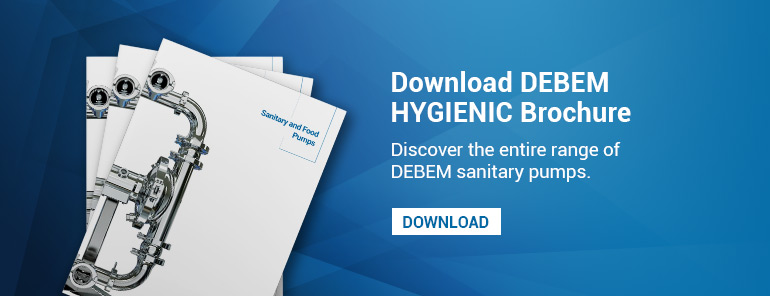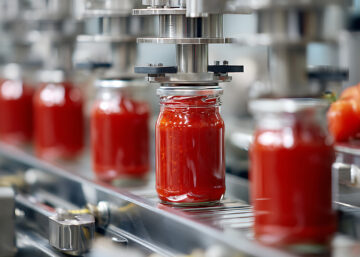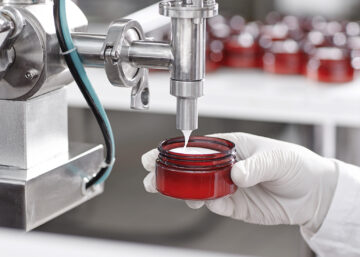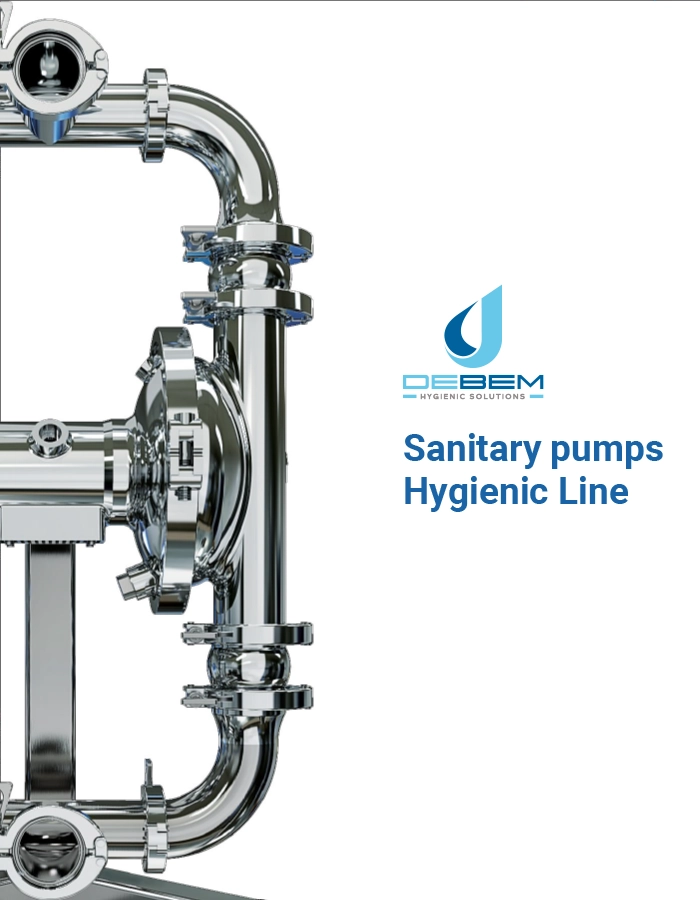Pumps for food processing plants: the innovation of pneumatic double diaphragm pumps
The food sector is one of the pillars of modern industry, and its efficiency and safety are vital. In this context, pumps play a crucial role. Pumps for food processing industry are widely used to transfer, mix and dose fluid and semi-fluid substances in processing and production applications. These pumps are made of materials suitable for food contact and feature smooth surfaces to prevent contamination by food and bacterial buildup.
Double-diaphragm pneumatic pumps are emerging as a particularly effective solution in this area. This type of pump offers several advantages that make them ideal for food applications. First, their ability to handle fluids of different viscosities makes them extremely versatile. Furthermore, owing to their sophisticated construction, they possess the capability to avert contamination, thereby ensuring the maintenance of rigorous hygienic standards. Additionally, their exemplary efficiency and reliability contribute to the reduction of downtime and maintenance expenditures, which are quintessential factors in an industry where optimizing margins and upholding unparalleled quality are imperative.
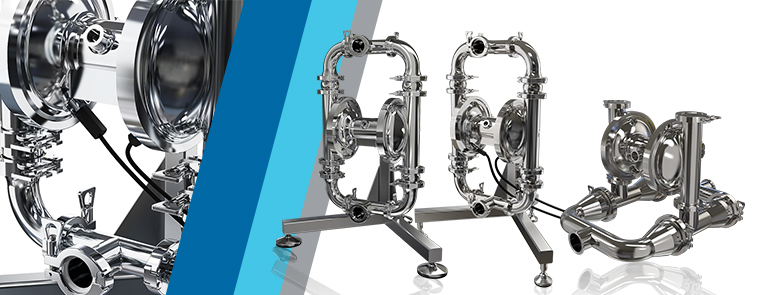
What is a double diaphragm air pump?
An Air-Operated Double-Diaphragm Pump (AODD) is a specialized pump that utilizes compressed air as its driving force. The compressed air is channeled through a pneumatic exchanger to one of the two diaphragms, causing it to compress and propel the product out through the discharge port. Simultaneously, the opposite diaphragm, which is connected to the exchanger shaft, creates a vacuum that draws fluid in. Upon completion of the stroke, the pneumatic exchanger redirects the compressed air to the other diaphragm, causing the cycle to reverse. This alternating action ensures a consistent and controlled fluid flow.
AODD pumps offer several advantages in the food industry:
- Hygienic and easy to clean: They are made of materials particularly suitable for food contact such as mechanically polished steel.
- Viscous fluid handling: They can pump fluids of different viscosities, making them suitable for a wide range of applications, such as transferring juices, sauces, and dairy products.
- Low maintenance: Their robust construction and operation without seals or moving mechanical components reduce the need for maintenance.
In summary, diaphragm pumps are an effective and reliable solution for many applications in the food industry because of their versatility, hygiene, and low maintenance costs.

Applications of pumps for food processing plants
Food processing pumps are extremely versatile and find a wide range of applications in the food industry. This is due to their efficiency, reliability, and ability to handle fluids of different viscosities.
Pumps for transferring liquid and viscous ingredients
One of the main applications of a food processing pump is the transfer of liquid and viscous ingredients such as: edible oils, edible syrups, food molasses, sauces, vegetable purees, jellies, dried fruits, and food concentrates. Diaphragm pumps are exceptionally versatile in handling fluids of different viscosities, from thick, viscous creams to the most fluid oils. This makes them ideal for a wide range of applications in the food industry.
Drum and container transfer pumps
AODD pumps are particularly effective in emptying containers (such as drums and bins) where it is important to minimize contamination and ensure product safety. Double-diaphragm pumps are ideal for this application because they can be used to transfer products with precision, ensuring that the contents of drums are completely transferred without leaving residue. In addition, food pumps are designed to be easy to clean, which is especially important when working with food products. This ensures that there is no accumulation of residue that could lead to bacterial growth or product contamination.
How to choose the right food processing pump?
In the food industry, when it comes to choosing a food plant pump, there are several factors that need to be considered to maintain high standards of quality and safety. The factors to consider are as follows:
- Type of fluid: it is important to consider the type of fluid that will be handled by the pump, as some liquids may be corrosive or particularly aggressive and therefore require particularly delicate handling. The pump chosen should be compatible with the chemical nature and viscosity of the fluid.
- Pumping capacity: it is important to choose a pump that can handle the volume of fluid required by the food process without running the risk of overloading. Choosing a pump with too low a flow rate can cause overheating and failure, while a pump with too high a flow rate can be underutilized and result in high start-up costs. Determining the optimal flow rate helps establish a balance, reducing the risk of short-term wear and tear and allowing scalability for possible future system expansions.
- Energy efficiency: Pump energy efficiency can have a significant impact on operating costs especially within production processes characterized by low margins.
- Ease of maintenance: A pump that is easy to maintain can reduce downtime and provide longer life. This not only reduces downtime but also ensures that the pump has a longer service life and that food products are handled hygienically.
- Certification and compliance with food regulations: in the food industry, it is essential that pumps comply with regulations and have the appropriate certifications. Some of the key certifications include FDA, 3A and MOCA, which ensure that the pumps are safe for use with food products and are able to be cleaned and sanitized effectively.
Debem products as the ideal choice
Debem presents an extensive assortment of premium-grade food pumps, tailored to cater to a diverse array of applications within the food processing sector. Fabricated from robust materials, Debem’s pumps are engineered for optimal efficiency and ease of maintenance. Moreover, with adherence to food safety regulations and possession of requisite certifications, Debem’s pumps stand as a paragon of reliability and compliance for the food industry.
Choosing the right pump for food systems requires careful consideration of several factors, including fluid type, pumping capacity, energy efficiency and ease of maintenance. It is also essential to ensure that the pump complies with regulations and has the appropriate certifications. Debem products, with their wide range and quality, are an excellent choice for a variety of applications in the food industry.


